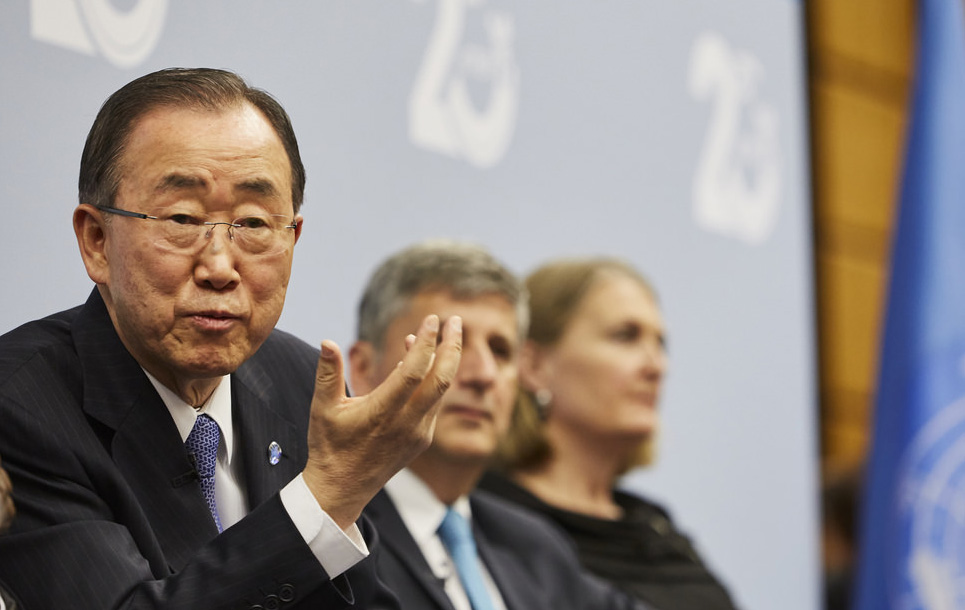As the Brazilian economy continues to experience its worst recession in decades, the government has opted to pursue an unprecedented austerity program over the next 20 years in order to stabilize the country’s economic situation.
On Dec. 13, Brazil’s senate passed the constitutional amendment known as PEC 55, which will essentially freeze all public funding for the next 20 years, other than adjustments for inflation. As this would in practice limit all federal spending on government programs such as education, health care, pensions, infrastructure, and defense to their 2016 levels for the next two decades, the legislation has been criticized as a blow to the poor by human rights experts, including the United Nations Special Rapporteur on extreme poverty and human rights, Philip Alston:
“It will hit the poorest and most vulnerable Brazilians the hardest, will increase inequality levels in an already very unequal society, and definitively signals that social rights are a very low priority for Brazil for the next 20 years.”
The legislation represents a significant divergence from the policies of former President Dilma Rousseff and her predecessor Luiz Inácio Lula da Silva, whose party, the Partido dos Trabalhadores, the Worker’s Party, emphasized government social programs such as health and education. Current President Michel Temer’s administration has justified the move as necessary in order to manage the country’s growing public debt.
The single event most central to both Brazil’s political and economic woes is the ongoing and far-reaching corruption scandal involving Petrobras, Brazil’s state-owned oil company, and Odebrecht, a massive Brazilian construction conglomerate.
“Operation Car Wash” originally started out as a money laundering investigation centered around a gas station, but ballooned to include top executives at Petrobras and Odebrecht, resulting in the jailing of dozens of executives and political leaders as the scale of graft and corruption became increasingly clear. In addition, the scandal led to impeachment of former Brazilian President Dilma Rousseff and subsequent installment of Temer as president.
Pointing to the austerity measure’s unpopularity (it was pushed quickly through the legislative process without public debate), as well as recent legislation introduced in the Brazilian congress aiming at retroactively pardoning politicians implicated in campaign finance scandals (including Temer), The Intercept‘s Glenn Greenwald contends that the original motivation for the ouster of Dilma was to ensure the protection of corrupt politicians as well as allow the passage of business-friendly austerity measures:
“[W]hat this really is about is two things: one, installing as president and the controlling faction in Brasília a group of people who believe in very pro-business, neoliberal ideology, that want to dismantle core social programs that have been constructed over the last 20 years, and which, on its own, could never be accepted by the majority of Brazilian voters; and secondly, what it’s about is empowering the very people in Brasília who actually are corrupt.”
Temer himself is currently mired in multiple scandals, while several of the central members of his party are being imprisoned. Just last month, Sérgio Cabral, the former governor of Rio de Janerio, was arrested on corruption charges alleging that he lead an organized crime ring which siphoned millions of dollars from public construction projects such as stadium renovations preceding the 2016 Summer Olympics. Eduardo Cunha, the house speaker and main driving force behind Ms. Rousseff’s impeachment, is currently in prison while he awaits trial on charges of money laundering and bribery.
While the political leaders of Brazil celebrate their victory, opponents of the government’s recent actions feel they have been betrayed. As Sam Cowie of Al Jazeera reports:
“Shortly after the amendment was voted in, Temer tweeted that U.S. President-elect Donald Trump called to congratulate him. Meanwhile, protests erupted across the country.”
Having been raised by feral pandas in the remote forests of Chengdu, China has always formed a key part of my identity. After my career as a Hong Kong film producer was derailed by tabloid journalists, I knew I had found the work that would become my life’s purpose. I am passionate about journalism because it allows me to step into worlds I would otherwise never know while channeling my curiosity toward serving and informing the community.







Exactly the sort of thing that will happen here after January 20th. The Republicans will slash and burn every social program that they can get their hands on, while privatizing everything else. The Democrats can only offer weak “nostalgic” and “fashionable” protest, but it will be useless because they have no real political power anymore and have completely dropped the ball. I hope PSU students have fun playing “pretend radical” when they go out to protest in their very fashionable, bohemian-chic, radical clothes. Have fun kids – you can make believe that it’s the 1960’s all over again, only you can record it all and post selfies of “radical politics” online, without so much as breaking a fingernail! What fun that should be, and you can all compete with each to see who can be more “radical” and “virtuous” in their compassion and caring! Lol. The mass infection of left-wing (hardly!) identity politics, where the concerns of the working classes were marginalized and ignored over the increasing sacralization of victimhood, is what got us into this mess in the first place. You can thank your professors for that. You have no clue what’s about to hit the universities, but I’m not surprised, because your bougie professors haven’t had a clue in almost 25 years, and silenced the ones who did have a clue, and tried to warn you.